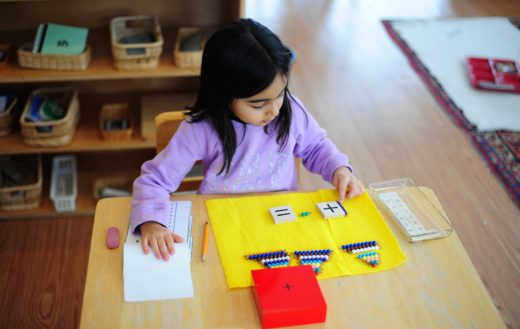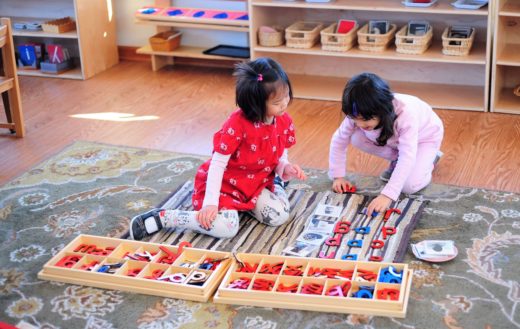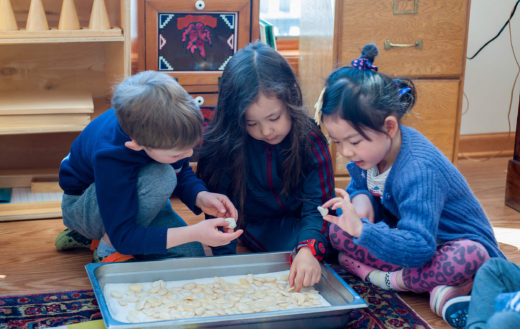Maths, Language, and Science

Mathematics
The central purpose of the Math materials in the early years is to lay the foundation for later cognitive development and to prepare for the gradual transition to abstract thinking. The primary values of these earlier activities in mathematics are found in the way they transform ideas into actions on concrete materials.
Students who learn math by rote method often have no real understanding or ability to put their skills to use in everyday life. Montessori students use hands-on learning materials that make abstract concepts clear and concrete. The Montessori math curriculum is based on the European tradition of “Unified Math,” which has only recently been recognized by leading American educators. Unified Math introduces elementary students to the study of the fundamentals of algebra, geometry, logic and statistics along with the principle of arithmetic. This study continues over the years, weaving together subjects that traditional schools normally ignore until the secondary grades.

Language
Language development is a concern of the entire Montessori classroom. Many activities in other areas, as well as with a large group, foster vocabulary development, communication skills, writing and reading readiness.
In the language area we will find a large variety of reading readiness materials, including materials for phonetic analysis, word attack skills and reading, as well as materials for the refinement of motor control for writing. In the Montessori Method, writing precedes reading, as the children explore with drawing and forming letters. The process of learning how to read should be as painless and simple as learning how to speak. The child begins by exploring the sounds that compose words and by relating them to the letters of the alphabet. He can soon produce words and sentences free of all other mechanical difficulties. In the meantime he trains his hand to become precise and sure for the writing movements. Reading is prepared indirectly from writing. The child starts from what he knows about letters and the sounds. Then we give him the key to read all the words so he can encounter. Reading skills normally develop so smoothly in Montessori classrooms that students tend to exhibit a sudden “reading explosion” which leaves the children and their families beaming with pride.

Science
Science is an integral element of the Montessori curriculum. Among other things, it represents a way of life: a clear thinking approach to gathering information and problem solving. The scope of the Montessori science curriculum includes a sound introduction to botany, zoology, chemistry, physics, geology, and astronomy. Some science activities you could see in a Montessori classroom are activities of magnetism, weights, growing plants and classification of plants and animals. The Montessori approach to science cultivates children’s fascination with the universe and helps them to develop a lifelong interest in observing nature and discovering more about the world in which we live.

